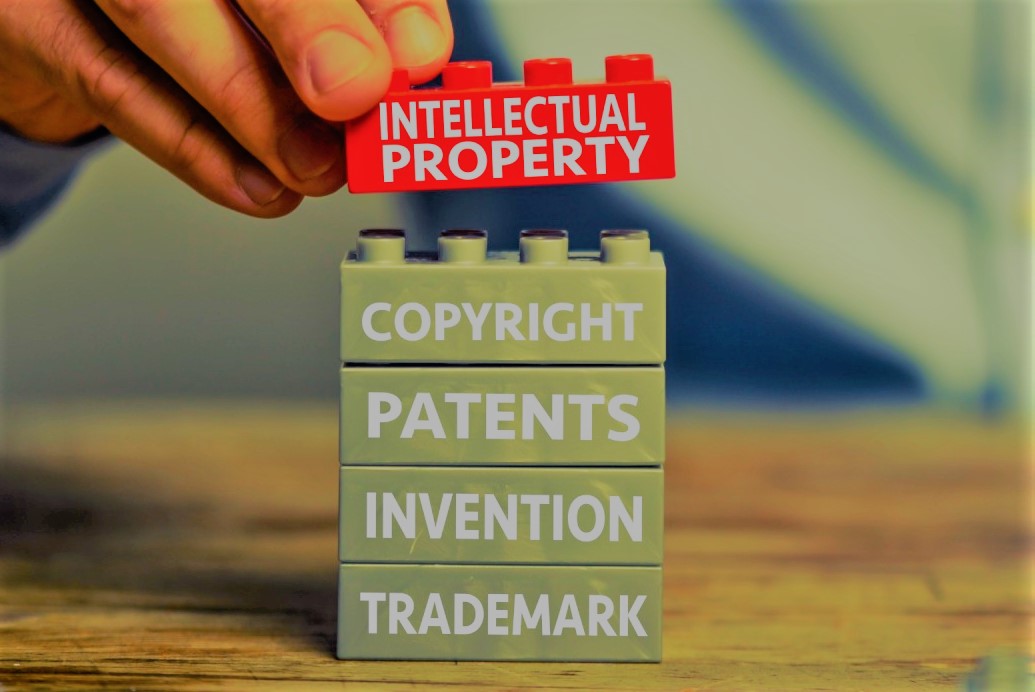Navigating the choppy waters of divorce is rarely a swift, uncomplicated course. As with any legal matter, the time it takes to finalize a divorce can vary widely, influenced by a myriad of personal, financial, and legal factors. For those in the midst of this life-altering process, understanding what drives the timeline of their divorce is not just an intellectual exercise—it’s a practical necessity that can impact their future on many levels.
This is your comprehensive guide to understanding the intricate web of influences that dictate the how long does a divorce take. We’ll explore the factors that often take center stage in the divorce drama and provide insights tailored for both couples in the thick of it and the professionals guiding them through this challenging terrain.
Complexity of Assets and Finances
At the heart of many divorce disputes lie financial matters, and the complexity of these entanglements can single-handedly stretch the divorce timeline. The more intricate the web of marital assets—ranging from bank accounts to real estate, investments, and business partnerships—the longer the process usually takes.
When spouses have difficulty reaching agreements over asset division, valuation, or tracing separate property, it adds layers of negotiations and legal proceedings. A divorce involving significant sums, offshore accounts, or volatile investments could stall over a single financial issue for an extended period.
Valuation and Division Challenges
Specific items often require extensive appraisal and valuation processes, which can add months to the proceedings. Valuing businesses, assessing the worth of intellectual property, or art collections are examples of assets that can prolong the divorce procedure. In such cases, each spouse’s financial expert may offer different perspectives, triggering a process of negotiation where the truth lies in the middle ground.
Tax Implications and Settlements
Tax considerations can significantly impact financial settlements. The Internal Revenue Service (IRS) rules concerning alimony, child support, and asset transfers can complicate settlements and require careful planning, which legal representatives must diligently address with the right financial advice.
Presence of Children and Custody Arrangements
Perhaps the most emotionally fraught aspect of a divorce is child custody. Each parent’s desire to maintain a significant role in their child’s life can lead to protracted legal battles and complex custody arrangements. These disputes, in turn, draw out the overall divorce process.
Navigating Parenting Plans
Developing an agreement that satisfies the best interests of the child while also addressing parental desires and schedules requires time and delicate legal work. Courts often encourage parents to reach their own parenting plan, but when they fail to do so, the judiciary must step in to decide, which can be a prolonged process.
International and Cross-State Custody Challenges
When parents live in different states or countries, the jurisdictional complexities add layers to the child custody and visitation schedules. Resolving these complications often involves not just family law, but also the adherence to international ordinances if applicable, which further delays the final decree of the divorce.
Level of Cooperation Between Spouses
A contentious divorce naturally leads to a longer, more acrimonious process. When marital partners cannot agree on major issues, such as the division of property and child custody, the case often ends up in litigation. Legal battles not only extend the timeline but also escalate the emotional and financial toll.
Alternative Dispute Resolution
Mediation and collaborative divorce methods can significantly reduce the time needed for settlements. Couples who are willing to negotiate with a level of civility under the guidance of neutral parties often reach agreements more swiftly, leading to a shorter divorce process.
Impact of High-Conflict Divorces
For high-conflict divorces, where one or both parties are unwilling to compromise, the legal system becomes their battlefield. Each issue escalates as it transitions from negotiation to litigation, creating multiple obstacles that prolong the process.
Legal Requirements and Paperwork
Every jurisdiction has its own set of legal requirements for divorce filings and settlements. From mandatory separation periods to waiting times for certain types of divorce, such as ‘no-fault,’ couples must adhere to these regulations, which can differ significantly by region.
Completing the Necessary Forms and Procedures
Fulfilling the necessary paperwork accurately and punctually is paramount in expediting the process. Any errors or omissions can lead to rejection of paperwork, which then necessitates corrections and resubmissions, each cycle adding time to the procedure.
Discovery Process and Information Gathering
To prepare for fair settlements, both parties must fully disclose financial information. The process of gathering and exchanging this evidence, known as discovery, can be comprehensive and time-consuming, as it often involves intricate documentation and analysis.
Court Caseload and Processing Time
The sheer volume of divorce cases can strain the capacity of a legal system, leading to waits for court appearances and judgment. Some jurisdictions have heavy caseloads, meaning that even uncontested divorces can linger on court dockets for months.
Scheduling Hearings and Trials
Securing a slot in a family court’s calendar, especially for contested issues requiring hearings or trials, can present significant delays. The scheduling of proceedings often depends on the availability of the court, the parties involved, and their legal representatives, which may not always align promptly.
Judicial and Administrative Constraints
Judges and court staff have limited time and resources. A divorce may rely on the court’s ability to process paperwork or schedule hearings, and any backlog can hold up a case irrespective of the parties’ wishes or preparedness.
Impact on Couples Going Through a Divorce
Understanding how these factors influence the divorce timeline is crucial for the individuals involved. The length of the process contributes to the emotional toll, financial strain, and the ability to move on and start a new chapter in life.
Stress and Emotional Toll
The longer the divorce drags on, how long does a divorce take it has to cause stress and emotional strain on both parties. Extended periods of uncertainty and legal wrangling can take a severe toll on the mental health of those involved, making it more difficult to heal and move forward.
Coping with Prolonged Legal Battles
For spouses navigating a high-conflict situation or protracted legal process, finding ways to manage stress and maintain emotional well-being is essential. Engaging in regular therapy, joining support groups, and practicing self-care can provide the necessary support during this challenging period.
Financial Implications
Each additional month of proceedings can incur more legal costs and prolong the period of financial limbo. Understanding the financial impact of a lengthy divorce process and planning accordingly is a prudent step for securing personal and economic stability.
Legal Fees and Divorce Costs
The longer a divorce takes, the higher the legal bill tends to be. Protracted litigation, especially over complex assets or custody, can be financially draining. Couples must be cognizant of these costs and manage their legal strategy accordingly.
Maintenance and the Cost of Living
Until a settlement is reached, a spouse may be entitled to spousal support, which serves as a form of financial aid. Prolonged divorces can postpone the establishment of these arrangements, affecting the standard of living for one or both parties involved.
Legal Strategies and Options for Expediting the Process
While certain factors are beyond the control of the divorcing couple, there are strategies that can potentially shorten the process. Being proactive and informed, engaging in alternative dispute resolution, and cooperating with legal counsel often lead to more expedient divorce outcomes.
Proactive Preparation
Gathering necessary documentation, such as financial records and certificates, prior to starting the divorce process can streamline proceedings. Proactive and organized spouses are better positioned to move through the various stages of divorce with efficiency.
Alternative Dispute Resolution Methods
Mediation and collaborative divorce have proven to be effective methods for reducing the time of dispute resolution. By working with neutral professionals, couples can often find mutually beneficial solutions without resorting to the courts.
Cooperation with Legal Counsel
Maintaining open communication and a cooperative relationship with legal representatives can significantly accelerate the divorce process. Clear instructions, responsiveness to requests, and a collaborative approach to strategy can make a tangible difference in how the case progresses.
Insights for Legal Professionals
Efficient management of a divorce case is not just about wins and outcomes in the courtroom; it’s about minimizing client stress and delivering results in a reasonable timeframe. Legal professionals must be adept at navigating these extraneous factors to provide the best service for their clients.
Strategies for Efficient Case Management
Effective case management involves setting realistic expectations, prioritizing tasks based on their impact on the case, and maintaining a structured approach to the legal process. Utilizing case management software, assigning dedicated support staff, and implementing robust procedural guidelines can all contribute to a streamlined approach.
Communication and Expectation Setting with Clients
Clear and honest communication is paramount. Legal professionals must keep clients informed about the various stages of the divorce and manage their expectations regarding the duration of the process. Setting a clear agenda at the outset and regular updates on progress can help minimize client frustration and anxiety.
Leveraging Technology and Resources for Streamlining Processes
Advancements in legal technology offer numerous tools and resources for expediting divorce proceedings. E-filing systems, virtual court appearances, and digital documentation can reduce logistical hurdles and accelerate the handling of cases. Legal professionals who harness these technologies are better positioned to offer efficient services.
Why Choose Us?
At our practice, we understand the delicate balance of swift resolution and thorough procedure. Our team of seasoned attorneys and support staff is dedicated to guiding you through the divorce process with expertise, empathy, and an unwavering commitment to your best interests.
Whether you are seeking to understand the factors that may prolong your divorce, looking for ways to expedite the resolution, or need support in managing the broader implications of your case, we are here to help.
Conclusion
Divorce is a life event fraught with complexity and nuance, and its length can have significant ripple effects on the future of the individuals involved. By understanding the factors that influence the divorce process, couples and legal professionals alike can make informed decisions that lead to more efficient, less taxing resolutions.
This exploration is only the beginning of a much larger conversation about the multifaceted nature of divorce proceedings. For those currently in the midst of this legal odyssey, the path forward is as unique and individual as the relationships that have led to this crossroad.
Navigating divorce is rarely a solitary endeavor. It often requires the support and guidance of skilled professionals who can offer both a steady hand and a compassionate ear. It is our hope that this guide provides the insight and direction you need to chart a course through this challenging terrain towards a new, more hopeful horizon.










Leave a Reply